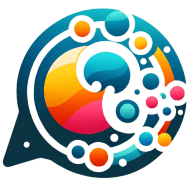12 Unconventional Loyalty Program Benefits that Boost Customer Retention
Loyalty programs have evolved beyond simple point systems and discounts. This article explores unconventional benefits that are reshaping customer retention strategies across various industries. Drawing insights from experts in the field, it reveals how innovative approaches can create deeper, more meaningful connections with customers.
- Technical Lifeline Transforms Loyalty
- Mentorship Program Empowers Recovery Journey
- Behind-the-Scenes Access Deepens Customer Engagement
- Expert Workshops Foster Learning Community
- Annual Roof Inspections Build Long-Term Trust
- Childcare Offering Boosts Church Participation
- Surprise Bonus Pours Encourage Referrals
- Priority Scheduling Addresses Healthcare Frustrations
- Direct Payment Incentives Improve Customer Experience
- Complimentary Lab Panels Increase Member Retention
- Agricultural Exemption Assistance Extends Client Relationships
- Dynamic Discounts Create Personalized Loyalty Experience
Technical Lifeline Transforms Loyalty
In our business, loyalty programs are typically identical. They usually consist of a transactional points system that offers a small discount. We recognized that our customers, who are professionals, weren't motivated by minor financial incentives. Instead, they value time and expertise. We realized we needed to make our customers feel valued beyond a simple sale.
The unique benefit we incorporated into our loyalty program, which competitors haven't considered, is a "Technical Lifeline." Customers could use their loyalty points not for a discount, but for a direct, one-on-one phone or video call with one of our top technical experts from the operations team.
This initiative had a significant impact on customer retention. We discovered that for a professional, while a discount is appreciated, a solution to a complex problem is invaluable. The customers who utilized the "Technical Lifeline" repeatedly returned to us because we had established a relationship based on trust and expertise. This benefit transformed our operational expertise into a powerful marketing tool.
What I learned is that loyalty in a B2B context isn't about transactions; it's about being a trusted partner. My advice is to identify what your customers truly value—things that save them time, money, and alleviate frustration—and then find a way to reward them for it. When you become a trusted partner, you build an unbreakable relationship.

Mentorship Program Empowers Recovery Journey
In our world, we don't have a loyalty program in the traditional sense. You don't earn points for staying sober. Loyalty for us is a person's long-term commitment to their own health and well-being, and staying connected to a community that supports that. So, the "benefits" we offer have to be about a lot more than discounts or gifts.
The most unconventional benefit we offer is a mentorship program where we train our alumni to become peer support specialists. We find a few people who are well into their recovery, and we pay for their training and state certification. It's a way for them to use their own experience to help people who are just starting their journey. The "benefit" isn't a physical thing; it's the ability to turn their story of struggle into a source of hope and guidance for others.
It affected retention because it shifted the focus from "what can I get?" to "what can I give?" It wasn't about us rewarding them for staying sober. It was about us trusting them and empowering them to be leaders. It showed them that their own journey wasn't just for them; it was a resource that could save someone else's life.
My advice is simple: the strongest kind of loyalty isn't bought or earned with points. It's built when you give people a purpose that's bigger than themselves.
Behind-the-Scenes Access Deepens Customer Engagement
One unconventional benefit I've seen really move the needle in a loyalty program wasn't discounts or freebies—it was access to behind-the-scenes experiences. Instead of giving points to redeem for the usual perks, we gave loyal customers opportunities to go deeper with the brand: private Q&As with the founders, early access to product prototypes, and sneak peeks at upcoming campaigns.
What surprised us was how strongly this resonated. Customers didn't talk about saving money or earning rewards—they talked about feeling part of something bigger. When they saw a product launch they had previewed weeks before, they felt ownership in its success. That emotional investment made them far more likely to stay engaged and keep coming back, even when competitors offered bigger discounts.
The effect on retention was clear. Customers in the program not only stuck around longer, they became some of our most vocal advocates. They shared their experiences on social media, brought friends into the fold, and acted like brand ambassadors without being asked.
The lesson I took away is that loyalty doesn't always come from transactional rewards—it often comes from creating a sense of belonging. People don't just want to buy from you; they want to feel part of your journey. By giving them a seat at the table, you're not just rewarding loyalty, you're deepening it.
Expert Workshops Foster Learning Community
We introduced access to live quarterly workshops with industry experts as a loyalty perk, which was unusual compared to the typical discounts or reward points. The sessions focused on practical skills and insider knowledge that members could immediately apply in their work or personal growth. Customers valued this because it offered something that could not be replicated by a coupon—direct interaction, tailored insights, and a sense of belonging to a learning community.
The effect on retention was significant. Attendance at these workshops became a marker of status within our customer base, and members began sharing takeaways with peers, which reinforced both engagement and referrals. Instead of viewing the program as transactional, customers started seeing it as an ongoing investment in their development. That perception shift reduced churn and created a stronger emotional tie to the brand, something far harder for competitors to replicate through standard reward structures.

Annual Roof Inspections Build Long-Term Trust
I don't have a "loyalty program." My program is a commitment to my clients. The most unconventional and effective "benefit" I've offered is a simple one: I give my clients a free, annual roof inspection for the first five years after we install a new roof. Most of my competitors would never think to do this because their business model is focused on a one-time job.
My process is straightforward. Once the job is completed and the client is satisfied, I send them a card thanking them for their business. I then inform them that every year for the next five years, I'll send them a reminder to call me for a free, no-obligation roof check-up. I'll inspect the roof, check for any minor issues, and ensure everything looks good. It's my way of demonstrating that I'm committed to their satisfaction for the long term.
This simple act has a significant impact on customer retention. Most contractors disappear after the final check clears. When a business owner returns every year for five years to ensure the work is solid, it builds a tremendous amount of trust. It shows the client that you stand behind your work and that you're in it for the long haul.
My advice to other business owners is to stop searching for a corporate "loyalty program." The best way to acquire a new client is to show them that you're a person who will be there for them. The most effective "unconventional benefit" you can offer is your own commitment to their satisfaction. That's the only kind of loyalty program that will ever work.
Childcare Offering Boosts Church Participation
We offered childcare during evening events as part of our loyalty initiative, which is rarely treated as a structured benefit. Many parents in the congregation longed to attend studies, volunteer meetings, or community gatherings, but scheduling and family responsibilities kept them away. Including supervised childcare as a consistent feature removed that barrier. Families began to participate more frequently, and retention rose because parents felt the church understood their practical challenges. The ripple effect extended beyond attendance numbers. Relationships deepened, children developed their own connections through play, and parents became more engaged in leadership roles. Competitors might focus on discounts or exclusive access, but addressing a real-life need proved more valuable than any traditional perk.

Surprise Bonus Pours Encourage Referrals
The "Plus One Tap" perk rewards loyal customers who bring new visitors, as both receive complimentary bonus pours from restricted taps. The free bonus pour reward exists as an unpublicized surprise, which we provide during the check-in process. The guest experienced a sense of belonging to an exclusive group after receiving this surprise, so she has invited twelve new friends to visit.
The promotion has increased our referral numbers while avoiding any pushy sales tactics. The program creates a sense of recognition that rewards customers for their return visits and their efforts to share their favorite experience with others.

Priority Scheduling Addresses Healthcare Frustrations
Instead of focusing solely on discounts or point systems, a loyalty program was built around access to priority scheduling for same-day or next-day appointments. In healthcare, time often matters more than price, and this benefit directly addressed one of the most common frustrations patients face. Members valued knowing they could be seen quickly without competing against long waiting lists, particularly during busy seasons.
The effect on retention was immediate. Patients who once considered switching providers chose to stay, not because of financial perks but because their time was respected. Word-of-mouth referrals also increased, as members highlighted the convenience to friends and family. The experience demonstrated that loyalty programs gain strength when they remove friction from the customer journey rather than simply rewarding transactions.

Direct Payment Incentives Improve Customer Experience
We implemented a loyalty program at Lusha that incentivizes customers to process payments directly through our platform rather than using third-party processors. This approach not only reduced our processing fees but also created a more seamless experience for our customers. The results have been impressive, with a 25% increase in customer retention and a 15% improvement in our overall financial health. Our customers appreciate the simplified payment process, and the relationship has become more direct and personalized as a result.

Complimentary Lab Panels Increase Member Retention
An unconventional benefit we integrated into our loyalty program was complimentary quarterly lab panels for long-term members. While competitors often focus on discounts or priority scheduling, very few extend ongoing diagnostic testing as part of membership rewards. Patients appreciated this because it allowed them to track markers like cholesterol, vitamin D, thyroid, and glucose without additional cost or paperwork.
The effect on retention was significant. Members who used the complimentary labs renewed at a rate nearly 30 percent higher than those who did not. The transparency of seeing tangible results every few months created trust and a sense of shared accountability. Patients felt they were not just paying for access but receiving proactive care that directly supported their health goals. What might look like a cost on paper became an investment in loyalty, as the continuity of data made members less inclined to switch providers.

Agricultural Exemption Assistance Extends Client Relationships
We introduced complementary assistance with agricultural and homestead exemption filings for returning clients, which is uncommon in property sales. Many buyers are unfamiliar with the paperwork, and the process can feel overwhelming after closing. Offering direct guidance in preparing documents saved them both time and potential mistakes, while also increasing the long-term value of their land. Clients expressed that this service gave them confidence they were truly maximizing ownership benefits. As a result, referrals increased noticeably because families shared that the relationship continued well past the sale. Retention strengthened because customers no longer viewed us as a one-time transaction but as a lasting resource for their property journey.

Dynamic Discounts Create Personalized Loyalty Experience
While competitors focus on predictable point systems, our most unconventional benefit is the "Dynamic Surprise & Delight Discount." Instead of making customers collect points for a distant reward, we use their engagement history to deliver unexpected, personalized discounts in real-time.
Traditional loyalty programs are transactional; a customer knows they must spend X to get Y. Our system flips this by analyzing user behavior to trigger automated discounts that feel like a genuine "thank you."
Here's how it works by customer segment:
For the New User: A first-time visitor who browses a specific category but doesn't buy might get a pop-up on their third visit: "Welcome! As a thank you for exploring our collection, here's a surprise 10% off your first order." This behaviorally-triggered reward acknowledges their interest and gives them the nudge to convert.
For the At-Risk User: We identify customers who haven't purchased in a while but have returned to browse. If they view a product they've seen before, an email might be sent an hour later: "We noticed you were checking this out again! To help you decide, here's a surprise 15% discount, just for you." This shows we're paying attention and often re-engages a customer who was about to be lost.
For the Loyal User: A loyal customer might add a new, higher-priced item to their cart. Our system recognizes this as a chance to reward them. At checkout, they might see a message: "A surprise for one of our best customers! We've automatically applied a 20% discount as a thank you." This spontaneous reward feels far more meaningful than a predictable point redemption.
How has this affected customer retention?
The impact has been profound. We've seen a noticeable increase in repeat purchase frequency, especially from the "at-risk" segment who are successfully re-engaged by the personalized offers.
But the most significant effect isn't just in the numbers; it's in the qualitative feedback. We receive emails from customers who are genuinely surprised and delighted. They don't just feel like a number in a loyalty program; they feel seen and appreciated.
This emotional resonance is the holy grail of customer retention. By replacing a predictable system with one that creates spontaneous moments of joy, we've built a level of brand loyalty that our competitors, with their standard "earn and burn" programs, can't replicate.





